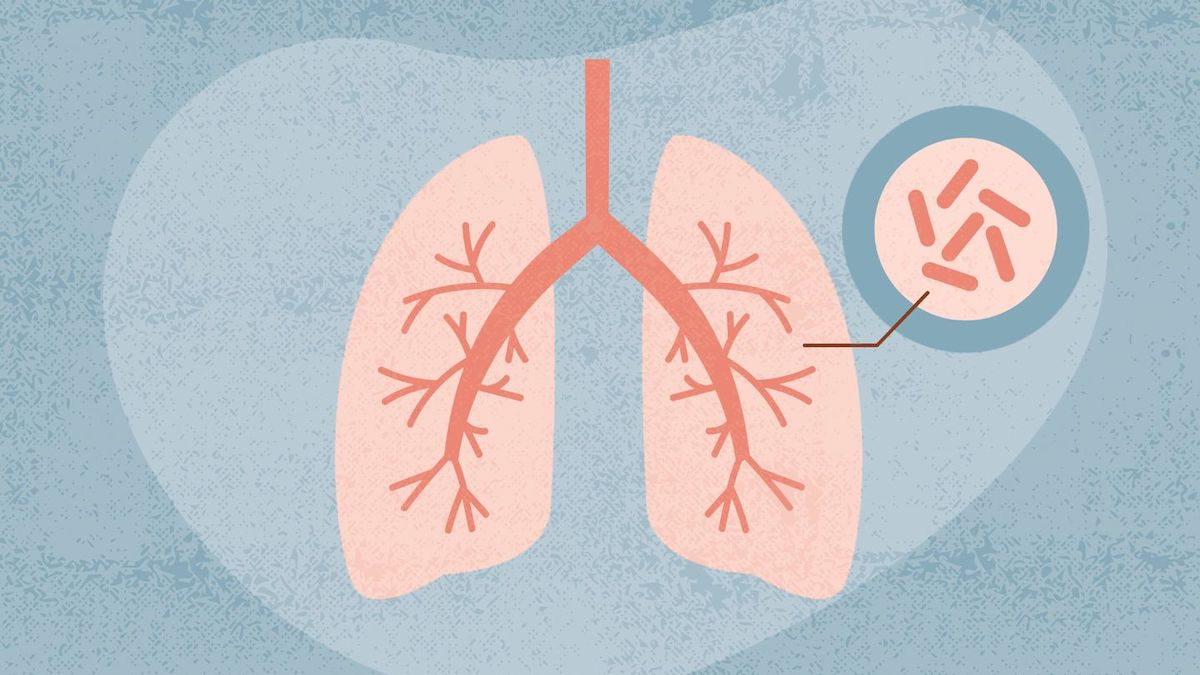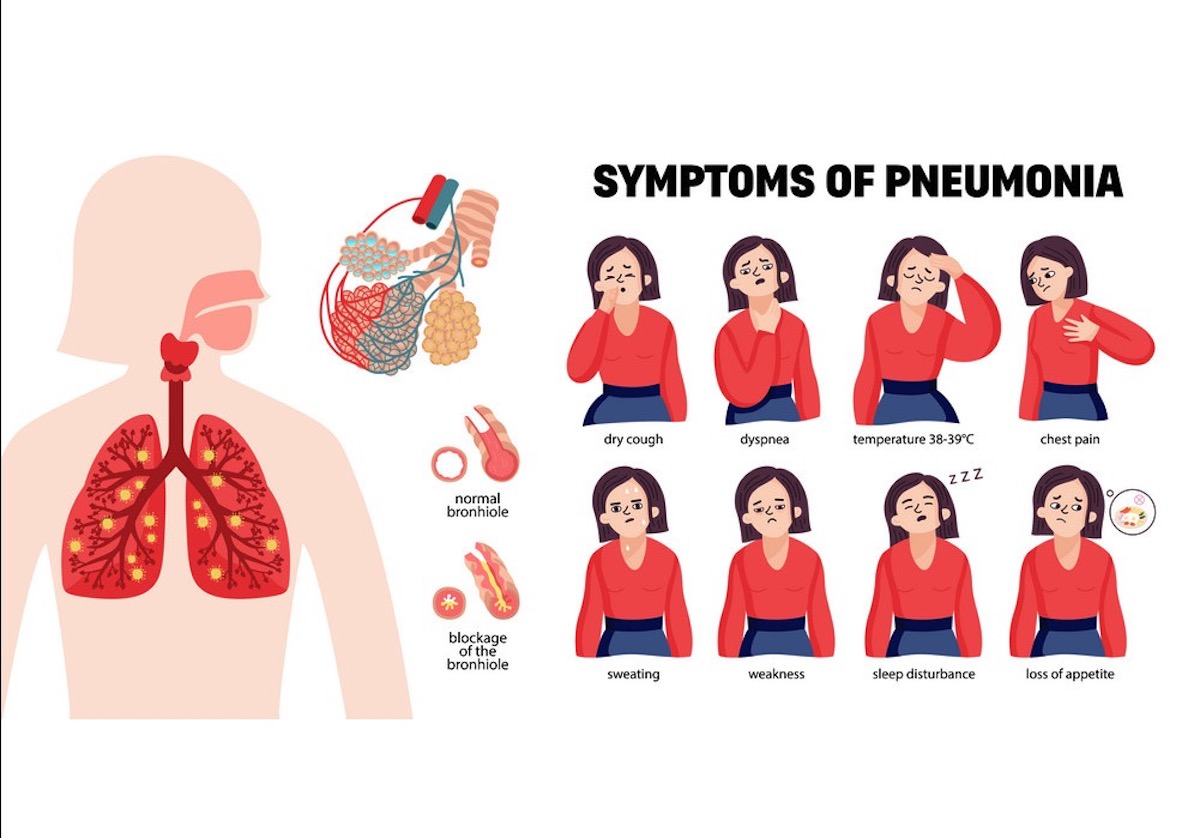Pneumonia is a lung infection that a lot of people in the United States get sick from each year. It can happen to anyone, young or old, but it’s more common in older people and those who have health problems. Many people have to go to the hospital because of this condition. Even with good medical care, it’s still a big reason people must go to the hospital. This shows us that understanding and preventing pneumonia is really important. Even though doctors can treat it, lots of people still get it, which means it’s important to know about it and try to stop it before it starts.

What Is Pneumonia?
Pneumonia is a lung infection where the tiny air sacs inside the lungs get inflamed and sometimes fill with fluid. This happens when germs like bacteria, viruses, or fungi enter the lungs and cause an infection. It’s a condition that can affect one or both lungs.
Causes and Types of Pneumonia
Pneumonia has different types, and different kinds of germs cause each type:
- Bacterial pneumonia: this happens when bacteria get into your lungs. It’s a common kind.
- Viral pneumonia: this type is caused by viruses, like the ones that give you a cold or the flu.
- Mycoplasma pneumonia: this kind is caused by mycoplasma, which are like tiny bacteria. It’s often milder than other types.
- Fungal pneumonia: this type comes from breathing in certain types of fungus from the environment. It’s more common in people with weaker immune systems.
- Aspiration Pneumonia: this happens when you accidentally breathe in food, liquid, or spit into your lungs.
- Hospital-acquired pneumonia: you can get this type when you’re in the hospital for something else. It can be serious because the germs in hospitals can be more resistant to medicine.
- Community-acquired pneumonia: This is when you catch the condition in your daily life, like at school or work. It’s the most usual kind.
If pneumonia isn’t found or treated, it can cause more problems. Mild issues might be feeling exhausted or having trouble breathing for a while. More serious problems can happen too. The infection can spread to other parts of the body, making you sicker. Sometimes, the fluid in the lungs can get infected, or the lungs might not work as well. For older people or those already sick, the risks are higher, and it can even be life-threatening. So the big question is, how do you recognize this respiratory condition?

Symptoms of Pneumonia
Pneumonia has several symptoms that people often notice. The two most common symptoms are coughing and fever. People suffering from this lung infection usually have a cough. Sometimes, this cough can bring up mucus from the lungs. They also have a high body temperature or fever. Other symptoms can include:
- Feeling tired or weak
- Trouble breathing or feeling short of breath
- Chest pain when you breathe or cough
- Shaking or chills
- Sweating a lot
- Not feeling hungry
- Confusion, especially in older people.
To diagnose pneumonia, a doctor will first talk to the patient about their symptoms and check their medical history. They’ll listen to the patient’s chest using a stethoscope to hear for any unusual sounds, like crackling, which can indicate this respiratory condition. Often, the doctor will order a chest X-ray to see if there’s an infection in the lungs. Sometimes, blood tests or tests on mucus from a cough are also done to identify the specific germ, which helps in choosing the right treatment.
Are There any Treatment Options?
When someone has a respiratory condition, the treatment depends on what caused it and how sick they are. For treating pneumonia, the two most common options are Antibiotics & rest and fluids. No matter what causes pneumonia, resting and drinking lots of water are really important. This helps your body fight off the infection. When bacteria cause it, doctors will give antibiotics. These are special medicines that kill bacteria and help you get better. Other treatment options can include:
- Cough medicine: to ease coughing.
- Fever reducers/pain relievers: like acetaminophen or ibuprofen, to lower fever and relieve pain.
- Hospital care: for severe cases, including oxygen therapy and IV fluids.
- Antiviral medication: if a virus causes the respiratory condition.
It’s important to seek treatment options that suit you, that’s why you should always do your own online research. Do you need more information about respiratory conditions? Continue your search here or start your online search here:

